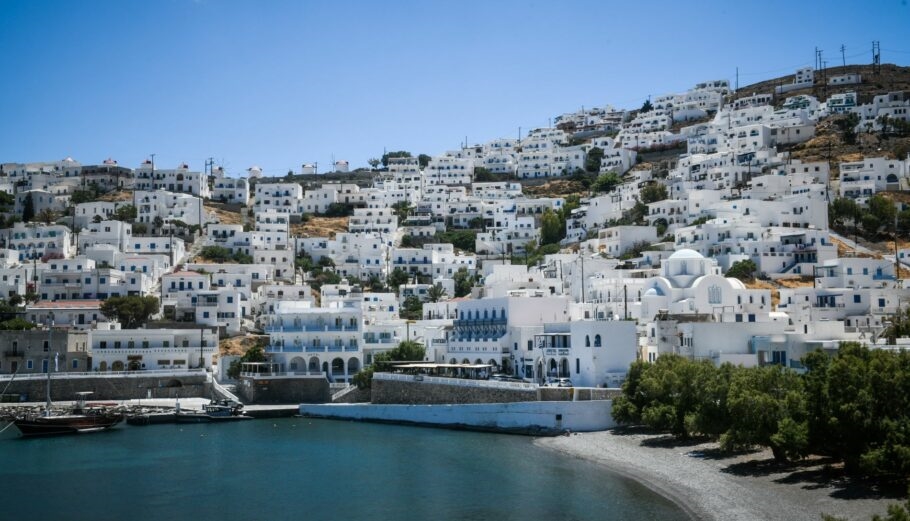Sources affiliated with Greece’s environment and energy ministry strang to action on Thursday morning in the wake of a bevy of same-day press reports citing a “mega” project – an entire tourist village – on the more unblemished Aegean island of Astypalaia – replete with holiday villas and resorts.
The sources said an investment plan, which reportedly eyes the creation of a “tourist village” on the island, and has been submitted to the ministry received a “pre-approval” but not a final “approval” by the relevant ministry-affiliated body – identified as the verbose Central Council of Town Planning Issues and Disputes.
The same sources claimed that, based on the legal process in place, the specific council cannot reject an application to review an investment proposal when it has been submitted with all required documents. The “pre-approval” in this phase is an initial notification by a potential investor to proceed with feasibility, market and other related studies.
Environmental impact would be required for such a tourist village project to proceed to paper, followed by briefings and contacts with stakeholders, another review by the same council, approval by the ministry’s political leadership, and finally, a review of the entire enterprise’s legality by the Council of State (CoS), Greece’s highest administrative court.
According to subsequent reports, picturesque Aspypalaia, the Dodecanese island farthest to the west in the central Aegean and more-or-less “off-the-beaten” path in terms of tourist arrivals, is entirely included in a local town planning regime, meaning that beyond other zoning conditions, the isle’s ability to host such an investment will be examined.
Similar to other major European and Mediterranean holiday destinations (both cities and islands) at least a few spots in Greece – most notably the iconic volcanic island of Santorini – have received recent international press attention this summer season for the nascent issue entailed with “over-tourism”.



